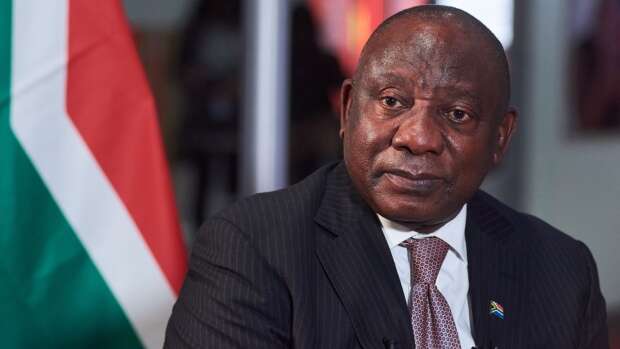By Haruna Gimba with agency report
President Ramaphosa said Africa needs to speak with a “unified voice” but further emphasised that that voice must having a stronger say international fora. Image Credit: ANI
Africa’s pandemic prevention, preparedness and response should be characterised by unity, solidarity and coherence between countries as was the case during the COVID-19 pandemic.
This is according to President Cyril Ramaphosa who was addressing the Uniting Behind a Common Africa Position on Pandemic Preparedness, Prevention and Response (PPPR) Summit on the sidelines of the ongoing United Nations General Assembly (UNGA) in New York.
“In the same way as we responded to COVID-19, Africa’s pandemic prevention, preparedness and response efforts should be defined by unity, solidarity and coherence.
“As far as I know, we in Africa are possibly the only continent that succeeded and managed to develop a clear strategy on how to respond to COVID-19. A well-articulated strategy, well developed strategy that enabled our continent, in more ways than one, to navigate its way through COVID-19.
“Likewise, Africa should set its own agenda to fit into the global plans. Africa is justified in wanting to have self-reliance in pandemic prevention, pandemic preparedness and response, or PPPR. Africa experiences over 100 infectious disease that have broken out quite often in a year, most of which we manage to contain,” he said.
Leaning further into Africa’s response to COVID-19, President Ramaphosa reminded those gathered at the PPPR Summit about the strides the continent made during the height of the pandemic.
“During COVID-19, Africa emerged as a leader in genomic surveillance. On two occasions, we were the first to alert the world to new COVID-19 variants.
“The relative success of Africa’s COVID-19 Response Strategy should be studied and documented. We need to understand the effect of factors such as the high degree of cross-border cooperation, local expertise, the relatively young population and the impact of partnerships. These learnings can form the basis of an informed, proactive strategy.
“Together, we built a solid foundation for PPPR…by strengthening our public health institutions. We initiated a pharmaceutical manufacturing strategy, established a model for continent-wide pooled procurement and exposed African products to the global market through the Africa Medical Supplies Platform.
“If ever there was a moment when our continent really showed positive signs of integration in practical terms, going just beyond talking about integration, it was during the COVID-19 pandemic,” he said.
President Ramaphosa emphasised that a combination of climate change and the increased movement of people has caused an increase in the frequency of outbreaks worldwide – making the need for pandemic preparedness a pressing matter.
“This means preparation is urgent and will not wait for us to make up our minds at the Intergovernmental Negotiating Body.
“It is for this reason that we support the establishment of an interim medical countermeasures coordination mechanism. However, it must correct the mistakes of ACT-A [Access to COVID-19 Tools Accelerator] and be founded on a firm principle of accountability and fair governance characterised by a partnership of equals.
“We support the WHO consultative process towards establishing this mechanism and that it should align with the determinations of the Intergovernmental Negotiating Body,” he said.
President Ramaphosa said the continent now has a “window of opportunity to maintain political will and investor interest to drive significant investments towards developing regional PPPR capacity.”
He added that this will require focus on critical areas: “Firstly, we need strong, sustainable, digitally-empowered primary health care systems and we need community-responsive national public health institutes.
“Because outbreaks happen at the community level, information must travel faster than the pathogen. Health services must be able to reach vulnerable groups on our continent, including those in conflict settings. Secondly, we need real-time surveillance and good cross-border cooperation.
“Thirdly, we need a capable and fit-for-purpose workforce. We need to urgently establish the health workforce task team to operationalise health workforce development. With such a large young population, Africa can be the hub of health workforce production to close the global health workforce shortage.
“Fourthly, we need equitable access to medical countermeasures, including vaccines, therapeutics and diagnostics, through local manufacturing and functional last-mile delivery of goods and services. Fifthly, we need predictable financing for pandemic prevention, preparedness and response systems,” he said.
President Ramaphosa said Africa needs to speak with a “unified voice” but further emphasised that that voice must having a stronger say international fora.
“As we build our regional capacity, we must also position ourselves prominently in the global PPPR negotiations. We need a unified voice as well as demonstrate that we have common positions to advance the interests of our continent but more particularly, the people who live on our beloved continent Africa.
“Africa needs to be well represented in key global fora, like the World Health Organisation’s consultative process towards an interim medical countermeasures coordination mechanism, the G20 as part of the AU’s new membership, the G7 MCM Delivery Partnership and the informal Johannesburg process,” he said.




